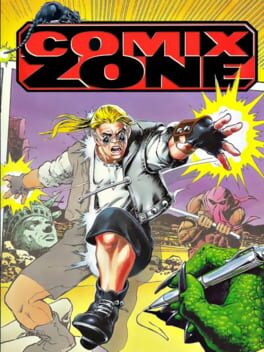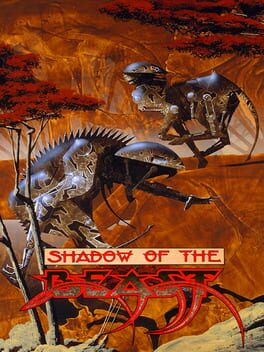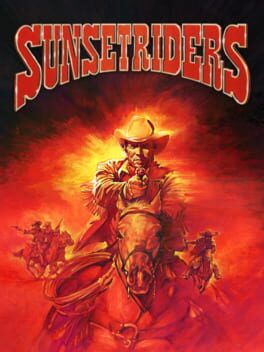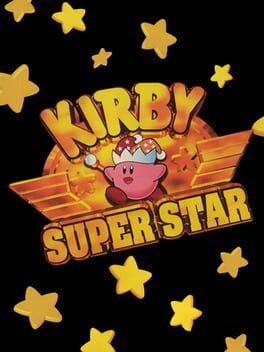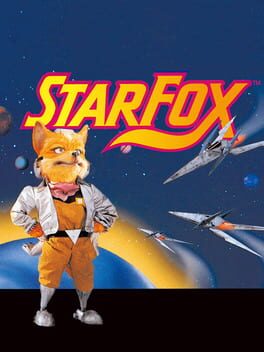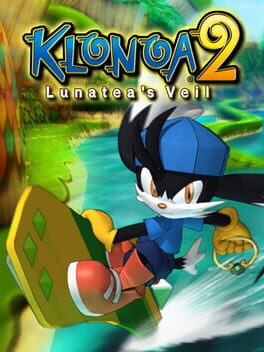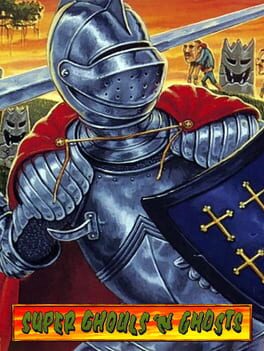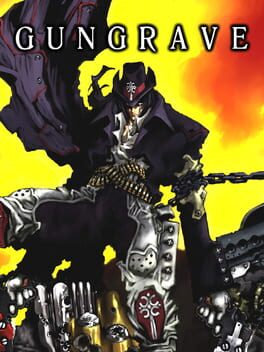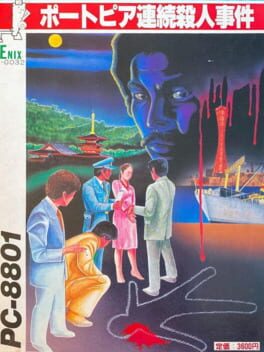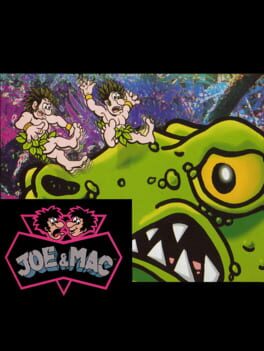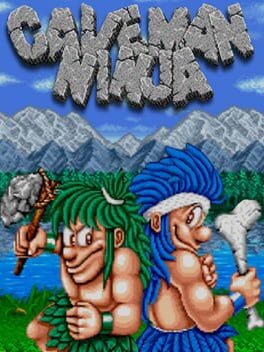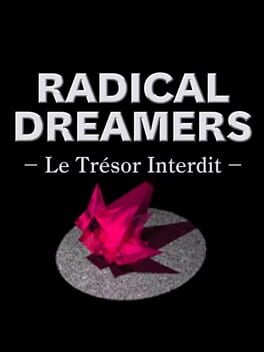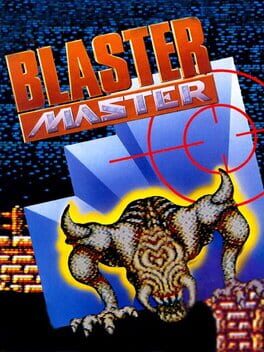Blowing_Wind
1995
1989
1991
1996
Let's not kid ourselves, Kirby is definitely a preschooler game. The setting is kiddy without it being parodic like with games such as Twinbee or Fantasy Zone; and apart from weird final encounters, doesn't have the dark depths of games like Earthbound or the latter released Klonoa.
Anyways, the game often feels as if it was a lost work made by Treasure, the technical design looks gorgeous, almost like an early PS1 title, with tons of animations and attention to detail. What keeps it from being as spectacular as a Treasure game, however, is that the game is segmented in various stories, so it feels episodic rather than the epic-scope Gainax anime-esque festival that is something like Gunstar Heroes. Also, the game recycles itself a lot to make for the various minigames included.
Nowhere is the feeling of what could have been an epic cinematic action game than in the "Revenge of Meta Knight" sub-story. The pink puffball needs to raid the battleship of its dark rival and destroy it from the inside, being tossed away numerous times and needing to get back into it with time limits until the world is conquered in an adrenalinic tour-de-force of a visual spectacle for the 16 bit era. Meanwhile, the lower half of the screen often gets filled with the dialogue reports of the villains updating on the ship's status after you keep advancing inside it. It's pretty ahead of its time.
Sadly, the rest of the sub-stories are standard Kirby fare of cute characthers battling for cute, quirky and silly reasons. If you are looking for a more interesting take on the nature of dreams with this cutesy art style, try the two main Klonoa games.
https://youtu.be/gwXq8wohQSk
^ I didn't know the slander video music came from here 🤣
Anyways, the game often feels as if it was a lost work made by Treasure, the technical design looks gorgeous, almost like an early PS1 title, with tons of animations and attention to detail. What keeps it from being as spectacular as a Treasure game, however, is that the game is segmented in various stories, so it feels episodic rather than the epic-scope Gainax anime-esque festival that is something like Gunstar Heroes. Also, the game recycles itself a lot to make for the various minigames included.
Nowhere is the feeling of what could have been an epic cinematic action game than in the "Revenge of Meta Knight" sub-story. The pink puffball needs to raid the battleship of its dark rival and destroy it from the inside, being tossed away numerous times and needing to get back into it with time limits until the world is conquered in an adrenalinic tour-de-force of a visual spectacle for the 16 bit era. Meanwhile, the lower half of the screen often gets filled with the dialogue reports of the villains updating on the ship's status after you keep advancing inside it. It's pretty ahead of its time.
Sadly, the rest of the sub-stories are standard Kirby fare of cute characthers battling for cute, quirky and silly reasons. If you are looking for a more interesting take on the nature of dreams with this cutesy art style, try the two main Klonoa games.
https://youtu.be/gwXq8wohQSk
^ I didn't know the slander video music came from here 🤣
1993
Argonaut Software brings the low-poly aesthetic from their PC games into console and makes it look pretty charming because of the inventive machine designs. The enemies seriously look to me like how aliens with an understanding of mechanics uncannily different from us would model their weapons, simple and elegant.
However, despite the gameplay variety (and since I'm using Backloggd and not My Game Database to review the games like works of art beyond the fact that they are fun), it works as a standard on rails shooter...
...With the added substance of the protagonists displaying personalities in radio communications in the middle of the battles, with the noble intent of building a believable comraderie. However, the instances of characterization are extremely limited. Apart from Slippy showing himself to be playful during a moment in the Route 1 Intro Stage, the characthers just repeat the same stock phrases over and over again as they get chased by an enemy, want an opportunity to attack, and get frustrated with the main protagonist. Peppy in particular ends up having no personality traits whatsoever, while Falco is just the jerkass of the group all the while trough. It wouldn't have been so difficult to make him warm up to Fox or vary his opinions as the stages progress.
So in the end, the game may look quite polished in its presentation but I don't think it quite makes the cut, it should have had more attention to detail put into the conversations. The most interesting characther is probably Fox's dad because they keep talking about his backstory, but he doesn't show up in the game. I played the secret levels and beat all three routes.
If you are interested in these style over substance cinematic kind of shoot em ups to make way for an estimulating adventure while you organically feel the backup of your crew, I recommend the Sega CD version of Silpheed. While it sacrifices the inventive art style in its use of low-poly aesthetic for a more chaotic (and sometimes epileptic-inducing) direction, and for gameplay fanatics it's a much simpler experience than Star Fox, it instead focuses on grand backgrounds for the conflict depicted and the conversations with your comrades are more genuine and inmersing.
However, despite the gameplay variety (and since I'm using Backloggd and not My Game Database to review the games like works of art beyond the fact that they are fun), it works as a standard on rails shooter...
...With the added substance of the protagonists displaying personalities in radio communications in the middle of the battles, with the noble intent of building a believable comraderie. However, the instances of characterization are extremely limited. Apart from Slippy showing himself to be playful during a moment in the Route 1 Intro Stage, the characthers just repeat the same stock phrases over and over again as they get chased by an enemy, want an opportunity to attack, and get frustrated with the main protagonist. Peppy in particular ends up having no personality traits whatsoever, while Falco is just the jerkass of the group all the while trough. It wouldn't have been so difficult to make him warm up to Fox or vary his opinions as the stages progress.
So in the end, the game may look quite polished in its presentation but I don't think it quite makes the cut, it should have had more attention to detail put into the conversations. The most interesting characther is probably Fox's dad because they keep talking about his backstory, but he doesn't show up in the game. I played the secret levels and beat all three routes.
If you are interested in these style over substance cinematic kind of shoot em ups to make way for an estimulating adventure while you organically feel the backup of your crew, I recommend the Sega CD version of Silpheed. While it sacrifices the inventive art style in its use of low-poly aesthetic for a more chaotic (and sometimes epileptic-inducing) direction, and for gameplay fanatics it's a much simpler experience than Star Fox, it instead focuses on grand backgrounds for the conflict depicted and the conversations with your comrades are more genuine and inmersing.
This review contains spoilers
"I believe that if you don't forget the sadness of this moment, we'll always be together"
The first Klonoa game was a cute fantasy adventure set in the realm of dreams with a plot which may at first seem standard but then evolves into suspicious plot twists with the fact the protagonist's grandfather claims he's known him for very little time; that the villain, an embodiment of nightmares, feels rejected while he says they allow something from another realm in the kingdom of Phantomile instead. And the big revelation of all, that the friend you have been tagging all along with just used you to battle the impending menace to his kingdom and made up your memories to go along in that lie.
The videogame players escape into a game and use it to mold it to their own fullfilling fantasy, right? Not in Klonoa. As if you were dreaming, you are just trapped in a narrative you can only have so much control of, and where the stuff in it makes of you not only THEIR escape, but also THEIR effective weapon against THEIR reality. And then they were planning to dispose of you afterwards just like you end up a game and then go on to play another one, the memories never as impactful as when you were experiencing your time with the work.
Klonoa 2 follows this theme of forgetting and disposing telling the infinitely more abstract story of a new kingdom, Lunatea, which is divided according to four states of mind: Tranquility, Joy, Dischord and Indecision. Those are the emotions its inhabitants had already got hold of. But they forgot one important emotion: the kingdom of Sorrow, a desolated place got collectively buried underground far away and its king, a characther who in design is reminiscent of the protagonist, felt betrayed for centuries, never got over it, and wants to fill the world he considers sinful with his only purpose of existence.
And a sinful world Lunatea definitely is. The fours kingdoms may represent their respective emotions, but don't balance them out with the internal sadness that is necessary to succesfully thrive. The kingdom of Tranquility needs to be so tranquil the people in it strive to be better but suffer psychological pressure in their attempt to be the next representative of their goddess. The kingdom of Joy is so joyful the inhabitants live in constant procrastination and never do anything more with their lives than spend it in amusement parks. The kingdom of Dischord is so dischordant they live in constant civil war which results in them destroying the physical place they live in. Finally, the kingdom of Indecision is so indecisive they only admire memories and don't want anyone else to make things move forward.
The game does feel more shounen anime like in its characthers and story progression, which is sad to see given how touching the original game was, but in its place, it holds an allegory of mental health that is really inventive.
In terms of presentation, the jump from the PS1 to PS2 allowed for more lavish and detailed backgrounds, even if that means the levels are often recycled to make the most out of the time spent on making them. Despite not contributing to the main theme of the game, the Ark looks freaking spectacular for a 2001 videogame; and the Kingdom of Sorrow reminds me of the final area of Dark Souls, a decrepit and enormous construction lost to time, where its unhabited buildings in a touch of surrealism still have couches in their balconies, to remind the player people once lived in there, admiring the constant sunsets and sorrowfully longing for the one that would happen the following day.
https://youtu.be/zzSnLR0KGH4
At the end of the story, though, being conquered by sorrow and left in total stagnation is also not right. Klonoa never metions his adventure with Huepow, he probably forgot him just like we forget the things we did when we dreamed. But now, after the time he spent with the new friends of this game, he seems to have matured. Understanding his path as a dream traveler, he accepts the sadness involved in parting ways with them, and asks them to do the same.
Because sadness is an essential part of the emotional experience, maybe not the one you look forward to the most, maybe not one that should encapsulate the rest. But something that, if we overcome it, makes us stronger.
The first Klonoa game was a cute fantasy adventure set in the realm of dreams with a plot which may at first seem standard but then evolves into suspicious plot twists with the fact the protagonist's grandfather claims he's known him for very little time; that the villain, an embodiment of nightmares, feels rejected while he says they allow something from another realm in the kingdom of Phantomile instead. And the big revelation of all, that the friend you have been tagging all along with just used you to battle the impending menace to his kingdom and made up your memories to go along in that lie.
The videogame players escape into a game and use it to mold it to their own fullfilling fantasy, right? Not in Klonoa. As if you were dreaming, you are just trapped in a narrative you can only have so much control of, and where the stuff in it makes of you not only THEIR escape, but also THEIR effective weapon against THEIR reality. And then they were planning to dispose of you afterwards just like you end up a game and then go on to play another one, the memories never as impactful as when you were experiencing your time with the work.
Klonoa 2 follows this theme of forgetting and disposing telling the infinitely more abstract story of a new kingdom, Lunatea, which is divided according to four states of mind: Tranquility, Joy, Dischord and Indecision. Those are the emotions its inhabitants had already got hold of. But they forgot one important emotion: the kingdom of Sorrow, a desolated place got collectively buried underground far away and its king, a characther who in design is reminiscent of the protagonist, felt betrayed for centuries, never got over it, and wants to fill the world he considers sinful with his only purpose of existence.
And a sinful world Lunatea definitely is. The fours kingdoms may represent their respective emotions, but don't balance them out with the internal sadness that is necessary to succesfully thrive. The kingdom of Tranquility needs to be so tranquil the people in it strive to be better but suffer psychological pressure in their attempt to be the next representative of their goddess. The kingdom of Joy is so joyful the inhabitants live in constant procrastination and never do anything more with their lives than spend it in amusement parks. The kingdom of Dischord is so dischordant they live in constant civil war which results in them destroying the physical place they live in. Finally, the kingdom of Indecision is so indecisive they only admire memories and don't want anyone else to make things move forward.
The game does feel more shounen anime like in its characthers and story progression, which is sad to see given how touching the original game was, but in its place, it holds an allegory of mental health that is really inventive.
In terms of presentation, the jump from the PS1 to PS2 allowed for more lavish and detailed backgrounds, even if that means the levels are often recycled to make the most out of the time spent on making them. Despite not contributing to the main theme of the game, the Ark looks freaking spectacular for a 2001 videogame; and the Kingdom of Sorrow reminds me of the final area of Dark Souls, a decrepit and enormous construction lost to time, where its unhabited buildings in a touch of surrealism still have couches in their balconies, to remind the player people once lived in there, admiring the constant sunsets and sorrowfully longing for the one that would happen the following day.
https://youtu.be/zzSnLR0KGH4
At the end of the story, though, being conquered by sorrow and left in total stagnation is also not right. Klonoa never metions his adventure with Huepow, he probably forgot him just like we forget the things we did when we dreamed. But now, after the time he spent with the new friends of this game, he seems to have matured. Understanding his path as a dream traveler, he accepts the sadness involved in parting ways with them, and asks them to do the same.
Because sadness is an essential part of the emotional experience, maybe not the one you look forward to the most, maybe not one that should encapsulate the rest. But something that, if we overcome it, makes us stronger.
2003
This review contains spoilers
It tries too hard to deconstruct the dark fantasy narrative to make a message about how the player is willing to go kill thousands of enemies, even children characthers, just to beat a videogame.
But I feel it's portrayal of the mental health problems of these characthers are really forced. It's not like Metal Gear Solid where the game doesn't reward you for killing people like a mad movie action hero, instead counting the number of enemy deaths (in a stealth game) at the end of the playthrough, nor is it possible to play it through the true end in a way where you can choose to spare the enemies like in Undertale. No, it's one of those works of art that shames on you for sticking with it.
And you HAVE to stick with it. In need of unnecesary padding, you have to collect every cryptically available weapon in the game just to be able to select the final chapter and reach the true ending. The weapons you collected aren't used narratively in this Evangelion-esque finale, either, it's just there to make your purchase last longer and forces you to kill even more people in the process. It doesn't end up saying anything more philosophically or psychologically valuable than the rest of the adventure which was already dropping an anvil over the brutality of war.
The characthers aren't that special either, they are more risqué than anything deep. The most interesting ones are a pedophile who feels guilt for leading his brothers to their death once he left them unprotected because of his need to stop his sexual desire (yes, you can play as a pedophile), and Arioch, a woman who lost her children and has a cannibalistic mental disorder that makes her eat them because she thinks inside her there won't be anything from the exterior threatening them (yes, you play as a cannibal). The script doesn't do anything much to deepen their conflict but at least it's really interesting to see these unusual kind of characthers in a videogame.
Overall, the experience just felt like a drab adventure deconstruction with monotone visual design, lots of filler, but some interesting ideas that should have been fleshed out more. I hope the sequel, Nier: Replicant is a better game.
But I feel it's portrayal of the mental health problems of these characthers are really forced. It's not like Metal Gear Solid where the game doesn't reward you for killing people like a mad movie action hero, instead counting the number of enemy deaths (in a stealth game) at the end of the playthrough, nor is it possible to play it through the true end in a way where you can choose to spare the enemies like in Undertale. No, it's one of those works of art that shames on you for sticking with it.
And you HAVE to stick with it. In need of unnecesary padding, you have to collect every cryptically available weapon in the game just to be able to select the final chapter and reach the true ending. The weapons you collected aren't used narratively in this Evangelion-esque finale, either, it's just there to make your purchase last longer and forces you to kill even more people in the process. It doesn't end up saying anything more philosophically or psychologically valuable than the rest of the adventure which was already dropping an anvil over the brutality of war.
The characthers aren't that special either, they are more risqué than anything deep. The most interesting ones are a pedophile who feels guilt for leading his brothers to their death once he left them unprotected because of his need to stop his sexual desire (yes, you can play as a pedophile), and Arioch, a woman who lost her children and has a cannibalistic mental disorder that makes her eat them because she thinks inside her there won't be anything from the exterior threatening them (yes, you play as a cannibal). The script doesn't do anything much to deepen their conflict but at least it's really interesting to see these unusual kind of characthers in a videogame.
Overall, the experience just felt like a drab adventure deconstruction with monotone visual design, lots of filler, but some interesting ideas that should have been fleshed out more. I hope the sequel, Nier: Replicant is a better game.
All three Ghost and Goblins games I've finished have tightly designed set pieces even though the difficulty is through the roof, which lends it a bit of personality and diversity which wouldn't be found in traditionally segmented levels. However they all suffer the same problem: you have to beat them twice to reach the ending. These old games and their need of unnecesary padding, my god.
Also give me back the multidirectional aiming of the previous entry instead of the double jump feature, thank you very much.
Also give me back the multidirectional aiming of the previous entry instead of the double jump feature, thank you very much.
2002
This game is like a late 90's rule of cool Anime OVA with that sick aesthetic by the creator of Trigun and that badass jazzy music.
However it comes with a price, also just like a late 90's OVA, it is very underwhelming in its short duration and can't manage to explore its themes and story of two criminal partners who had a dream to reach the highest position in the criminal world, and the protagonist being like a reanimated corpse who is only made to kill everyone in his way to have revenge. I feel there's some commentary about corrupted ambitions but instead, the game indulges in bizarre boss encounters that feel out of place when they could have had more personal battles (like the one near the end with the protagonist's previous apprentice).
I hope the 2003 anime TV series can fully explore the themes
However it comes with a price, also just like a late 90's OVA, it is very underwhelming in its short duration and can't manage to explore its themes and story of two criminal partners who had a dream to reach the highest position in the criminal world, and the protagonist being like a reanimated corpse who is only made to kill everyone in his way to have revenge. I feel there's some commentary about corrupted ambitions but instead, the game indulges in bizarre boss encounters that feel out of place when they could have had more personal battles (like the one near the end with the protagonist's previous apprentice).
I hope the 2003 anime TV series can fully explore the themes
1995
This review contains spoilers
One of the most overrated RPGs of all time. In the past I had been fed up when playing Final Fantasy VI, a contemporary to this title, because up to the midway point there's really nothing of interest going on that you couldn't find on your average shonen anime of the time.
However, that title got better after I left it on hold for half a year and came back after the plot twist, while even after leaving this to come back after I regained my interest, I found the rest of the game to still be a childish adventure with average humor, archetypical characthers even though some get a bit fleshed out, and a time travel premise which automatically makes everything have no risk because the characthers can conveniently alter stuff on the past and come back to the future to solve everything.
To compare, Final Fantasy VI had a mid game twist where the world came to an end just as Lavos here makes it happen in one of the time periods. The game uses a time skip to propose how each characther you met spent time to give purpose to their lives after the catastrophe, and ultimately the message is that we can still try to better ourselves even if you can't go back to a time where everything was better.
What does "the best RPG of the 16 bit era" say about that? Well, the mute protagonist dies near the end of the game, and you can actually beat it without him. But the work allows you to resurrect him by way of a sidequest, so it automatically renders the impactful plot point worthless as it teaches the player you can go back to undo mistakes and not have to worry about time paradoxes. Why try to achieve something with what you have if you can give yourself the privileges back? Yes, the game uses this to comment that you made friends who stick up for you across the ages, but it doesn't justify the escapist nature of solving one's personal problems via altering the triggers (like Lucca stopping her mother's accident even though that was what made her interested in science: to make for healthier experiments. No, it doesn't make for a time paradox, the characther will still have passion for science even without her mother being incapacitated). Frog's story is the best of the bunch despite his clichéd knight personality because you can't revive his friend, even though it doesn't make his characther more complex than "I have the willpower to avenge him". Balthasar dedicating himself to complete the time machine even if he died is a really tragic bit of story which I wish the rest of the game had.
It angers me that just because this has more fun basic mechanics than FF6 (however FF6 is to me a more difficult and complex game to play), the fact it has multiple endings (no, I was bored by this and I won't play it again just to see them) and because average gamers looking for a simple story not to think about too much can reach this as an entry into the RPG mode of playing, it has been praised as the better of the two titles despite the fact it's so vanilla story-wise. Like FF6, great production values in graphics and soundtrack though.
Listen to this:
https://youtu.be/ZM9b9e_kwzI
However, that title got better after I left it on hold for half a year and came back after the plot twist, while even after leaving this to come back after I regained my interest, I found the rest of the game to still be a childish adventure with average humor, archetypical characthers even though some get a bit fleshed out, and a time travel premise which automatically makes everything have no risk because the characthers can conveniently alter stuff on the past and come back to the future to solve everything.
To compare, Final Fantasy VI had a mid game twist where the world came to an end just as Lavos here makes it happen in one of the time periods. The game uses a time skip to propose how each characther you met spent time to give purpose to their lives after the catastrophe, and ultimately the message is that we can still try to better ourselves even if you can't go back to a time where everything was better.
What does "the best RPG of the 16 bit era" say about that? Well, the mute protagonist dies near the end of the game, and you can actually beat it without him. But the work allows you to resurrect him by way of a sidequest, so it automatically renders the impactful plot point worthless as it teaches the player you can go back to undo mistakes and not have to worry about time paradoxes. Why try to achieve something with what you have if you can give yourself the privileges back? Yes, the game uses this to comment that you made friends who stick up for you across the ages, but it doesn't justify the escapist nature of solving one's personal problems via altering the triggers (like Lucca stopping her mother's accident even though that was what made her interested in science: to make for healthier experiments. No, it doesn't make for a time paradox, the characther will still have passion for science even without her mother being incapacitated). Frog's story is the best of the bunch despite his clichéd knight personality because you can't revive his friend, even though it doesn't make his characther more complex than "I have the willpower to avenge him". Balthasar dedicating himself to complete the time machine even if he died is a really tragic bit of story which I wish the rest of the game had.
It angers me that just because this has more fun basic mechanics than FF6 (however FF6 is to me a more difficult and complex game to play), the fact it has multiple endings (no, I was bored by this and I won't play it again just to see them) and because average gamers looking for a simple story not to think about too much can reach this as an entry into the RPG mode of playing, it has been praised as the better of the two titles despite the fact it's so vanilla story-wise. Like FF6, great production values in graphics and soundtrack though.
Listen to this:
https://youtu.be/ZM9b9e_kwzI
Despite having watched like hundreds of Detective Conan episodes last year and expecting a typical melodrama gimmicky mystery with revelations that become predictable as the cause for the murders, the extremely short lenght makes for a cute breeze of a playthrough and a story which actually has an emotional plot twist at the end I didn't expect.
Hoped it was a much more complex story that doesn't involve these tired bussiness conspiracies Japanese mystery works often tend to become, though, even if it was ambitious for its time.
Hoped it was a much more complex story that doesn't involve these tired bussiness conspiracies Japanese mystery works often tend to become, though, even if it was ambitious for its time.
1991
Despite the usual Data East bizarre charm, the game feels cheap (not only in level design, the abscence of health regeneration after levels and how you control it, which is the part of the experience for game sportists) because of how repetitive it becomes. The only way this is hard is because how long the bosses take to beat with those mind numbing patterns
After playing the Sega Genesis version that replicates the Arcade closer, I decided to lower the score from a 4 to a 3/10
After playing the Sega Genesis version that replicates the Arcade closer, I decided to lower the score from a 4 to a 3/10
1991
Holy crap the Genesis version feels superior to the SNES. Something as minute as good collision detection and sound effect feedback can make a world of a difference to how a game feels.
It still has the problem that the game repeats concepts of bosses to make a repetitive experience on the long run, specially after the fact the levels are shorter and it becomes like Treasure's Alien Soldier as the substance is found in the boss fight marathon, but the ability to choose different paths gives it some variety.
Tedious as it was, the boss fight at the end of the SNES felt more climactic, though.
Lowered the SNES score from 4 to 3.
It still has the problem that the game repeats concepts of bosses to make a repetitive experience on the long run, specially after the fact the levels are shorter and it becomes like Treasure's Alien Soldier as the substance is found in the boss fight marathon, but the ability to choose different paths gives it some variety.
Tedious as it was, the boss fight at the end of the SNES felt more climactic, though.
Lowered the SNES score from 4 to 3.
People, you can save the game when you press Y while going through the hallways.
An interesting text adventure which feels rather generic for most of the playthrough, though in its short lenght it does plant clues for some interesting backstory for the few characthers roaming around the castle, which comes around really well at the end with a beautiful, hallucinogenic finale, though it's left open, I believe to lead into Chrono Cross. Oh, and the characthers don't travel in time to solve their traumas like in the prequel.
"She lived on, enduring a much sadder fate... Running from her past and fearing her future, she wanted nothing more than to be swallowed up in the surging waves of the vortex of time"
An interesting text adventure which feels rather generic for most of the playthrough, though in its short lenght it does plant clues for some interesting backstory for the few characthers roaming around the castle, which comes around really well at the end with a beautiful, hallucinogenic finale, though it's left open, I believe to lead into Chrono Cross. Oh, and the characthers don't travel in time to solve their traumas like in the prequel.
"She lived on, enduring a much sadder fate... Running from her past and fearing her future, she wanted nothing more than to be swallowed up in the surging waves of the vortex of time"
1988
This review contains spoilers
An early metroidvania with the dumbest child isekai plot you could ever think of and a lack of infinite continues in the western version because videogames back then were simple toys that needed to last long instead of works of art.
Despite the ambition that shines through at first with the vulnerability with which the Sunsoft team portrayed the pilot of the SOPHIA in a manner similar to cinematic platformers, a massive world for NES standards bringing different little environments with a graphical simulation of 3D depht at some points...
Gameplay wise it's just clunky. As one of their first projects it was maybe too ambitious and couldn't be polished properly. Early on, there are some spots where the SOPHIA can get stuck on and you simply need to commit suicide to reset things, even if later when you come through that area with the new powerups, you can get out. Unlike posterior games in the genre like Super Metroid, where you can toggle the weapons on and off: you can fire the special shots when pressing down and the fire button (good luck swimming without wasting it) and near the end of the game the platforming becomes extremely annoying because there's a required improvement to the vehicle where it starts automatically climbing up and down walls, making jumps unnecesarily complicated because you can't turn that off. Metroid II would later improve on this wall-climb ability by making it activate while you are in rolling ball mode.
And well, compared to Metroid or The Guardian Legend for NES, the atmosphere is lacking, and compared to the latter, the story is as minimal as you can get. Because it doesn't have a password system in neither the japanese or the western versions, you also have to beat it in one sitting, forcing you to replay it from scratch whenever you turn it off, which is a sin for a 4 hour metroidvania. I used save states at the start of every area so I could continue later once I got tired, I'm not falling on this archaic trap for kids from the 80s who had nothing better to escape to.
Despite the ambition that shines through at first with the vulnerability with which the Sunsoft team portrayed the pilot of the SOPHIA in a manner similar to cinematic platformers, a massive world for NES standards bringing different little environments with a graphical simulation of 3D depht at some points...
Gameplay wise it's just clunky. As one of their first projects it was maybe too ambitious and couldn't be polished properly. Early on, there are some spots where the SOPHIA can get stuck on and you simply need to commit suicide to reset things, even if later when you come through that area with the new powerups, you can get out. Unlike posterior games in the genre like Super Metroid, where you can toggle the weapons on and off: you can fire the special shots when pressing down and the fire button (good luck swimming without wasting it) and near the end of the game the platforming becomes extremely annoying because there's a required improvement to the vehicle where it starts automatically climbing up and down walls, making jumps unnecesarily complicated because you can't turn that off. Metroid II would later improve on this wall-climb ability by making it activate while you are in rolling ball mode.
And well, compared to Metroid or The Guardian Legend for NES, the atmosphere is lacking, and compared to the latter, the story is as minimal as you can get. Because it doesn't have a password system in neither the japanese or the western versions, you also have to beat it in one sitting, forcing you to replay it from scratch whenever you turn it off, which is a sin for a 4 hour metroidvania. I used save states at the start of every area so I could continue later once I got tired, I'm not falling on this archaic trap for kids from the 80s who had nothing better to escape to.
